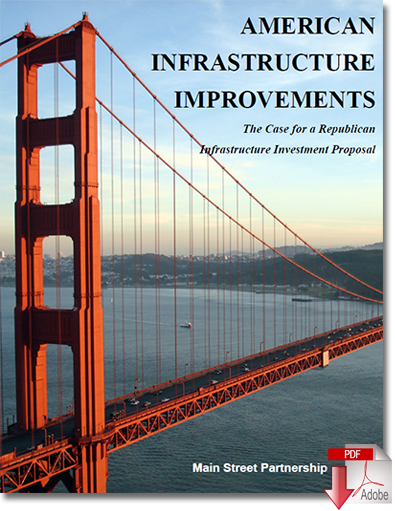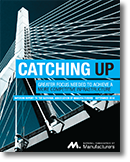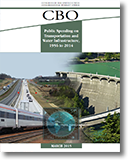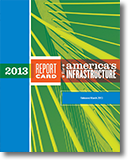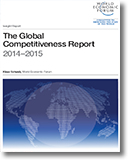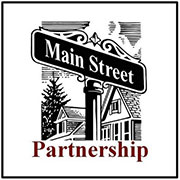Time for Congress to Focus Seriously on Addressing Transportation & Infrastructure
A new white paper from the Main Street Partnership offers a road map and recommendations for Republicans and Democrats to work together to tackle our country’s most pressing transportation and infrastructure needs.
In the 1950s, it was a Republican president, Dwight D. Eisenhower, who looked into the future and understood that if the United States was to continue to grow and modernize, it needed a strong federal transportation infrastructure.
And under his watch he urged the states to work with the federal government to upgrade our roads and bridges, and overcome the “appalling inadequacies” of the nation’s highway network with a federal focus on building a national system of interstate highways.
By the time Eisenhower left office, 10,440 miles or 25 percent of the 41,000-mile Interstate System had been opened to traffic and more than $10 billion had been expended on the interstates.
It was because Eisenhower and other leaders looked ahead, worked with both political parties and invested in our future that America was able to grow into the superpower that it is today.
Sixty years later, there is general agreement that America’s infrastructure needs once again require significant improvement.
By some measures, our current national investment in infrastructure is at a 70-year low, and this investment deficit is imposing serious costs on our economy and global competitiveness.
Republicans as well as Democrats concur that the current surface transportation law (MAP-21) must be reauthorized and that our national success depends upon infrastructural maintenance and new improvements. As Speaker John A. Boehner said recently, fixing U.S. infrastructure is “critically important.”
American Infrastructure Improvements - The Case for a Republican Infrastructure Investment Proposal
Any infrastructure project proposals put forward by the Republican Party must be subject to rigorous prioritization, based on strategic and multimodal planning.
Public discontent over the 2011 economic stimulus program stemmed in part from the perception that infrastructure funds were allocated on the basis of political connections rather than going to projects that would have maximal impact.
And, given the tendency of individual transportation modes to plan without reference to or coordination with other modes, infrastructure investments can be inefficient and even useless if they are not multi-modal.
The current slowdown at West Coast ports, for example, is due in part to the lack of available chassis for trucks at terminals. Harbor dredging and improvements to inland waterways are also vitiated by ports’ difficulties with last-mile connections and lack of multi-modal capacities.
These problems will only be exacerbated by the administration’s budgetary proposal to slash port funding, despite projections that port volumes will double by 2020.
That is also the message the Main Street Partnership delivered to Congress in a new white paper and a forum we held on Capitol Hill last week with House Transportation and Infrastructure Subcommittee on Aviation Chairman Frank A. LoBiondo, R-N.J., and a member of the House Transportation and Infrastructure Committee Ryan A. Costello, R-Pa.
There is no question that fiscal discipline is a foundational Republican belief we must adhere to, but so too is the conviction, dating back to the earliest days of our republic, that infrastructure investment is a national investment that can bring significant job growth, more efficient transportation, greater public safety and many other benefits.
There is no shortage of examples that highlight the problems caused by our underfunded and ill-maintained infrastructure. Shoddy infrastructure costs us billions of dollars in lost income and growth each year. Road congestion costs us more than $120 billion annually as well as nearly 3 billion gallons of wasted fuel.
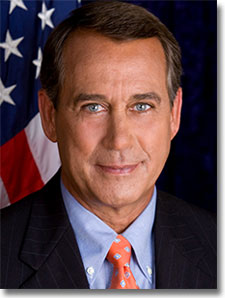
With 32 percent of roads in poor or mediocre condition, taxpayers pay an average of $444 annually in additional vehicle repairs and operating costs. One-quarter of the nation’s bridges are structurally deficient or don’t have enough capacity for current traffic levels. Freight bottlenecks, according to the Department of Transportation, cost the economy $200 billion a year, or the equivalent of more than 1 percent of gross domestic product.
The Federal Aviation Administration estimates that air traffic delays cost the economy $32.9 billion a year. Uncertainties about the future reliability of our energy, water and transportation systems are creating obstacles to investment in some parts of the country and thus impeding new business investment.
In short, our aging, substandard national infrastructure is a drain on the country’s productivity, a cost to businesses and a public safety hazard.
Republicans should also recognize that while it may seem counter intuitive, the comparatively low-dollar, short-term fix for infrastructure is oftentimes far less economical than a higher-dollar, long-term plan. Short-term funding interferes tremendously with large-scale projects that require long term planning and financing.
Uncertainty over the future leads states, localities, and private enterprises to defer infrastructure investments or cancel them outright. For this reason, a Republican transportation and infrastructure proposal should be a sustained, multiyear program rather than a short-term fix.
The new white paper from the Main Street Partnership offers a road map and recommendations for Republicans and Democrats to work together to tackle our country’s most pressing transportation and infrastructure needs. From investing in roads and bridges, to reauthorizing the Federal Aviation Administration to modernizing our national energy infrastructure to addressing growing broadband and cybersecurity issues, Congress should not allow partisan politics to prevent them from addressing the important issues before us.
We applaud members of Congress such as LoBiondo, Costello and the many other members of Main Street who are working to address these important issues and hope more of their colleagues join them in the months ahead to seriously address the transportation and infrastructure problems before us.
About the Authors
Steven C. LaTourette represented Ohio’s 19th and 14th congressional districts in the House from 1995 to 2013 and is president of Main Street Partnership. Sarah Chamberlain is the chief operating officer and the chief financial officer for Main Street Partnership.
Transportation & Infrastructure Resources
National Association of Manufacturers
Catching Up - Greater Focus Needed To Achieve A More Competitive Infrastructure
This report provides a historical accounting of infrastructure investment and offers a “whole picture” assessment that is important to the well-being and growth of the manufacturing economy.
Congress of The United States Congressional Budget Office
Public Spending on Transportation and Water Infrastructure
This Congressional Budget Office report provides information from 1956 to 2014 on spending for six types of transportation and water infrastructures: Highways, Mass transit and rail, Aviation, Water transportation, Water resources, and Water utilities.
The American Society of Civil Engineers
2013 Report Card for America’s Infrastructure
The ASCE 2013 Report Card shows that if we focus our attention with innovative solutions and increased investment and with strong and sustained leadership at all levels we can improve our infrastructure.
World Economic Forum
The Global Competitiveness Report 2014–2015
The Global Competitiveness Report 2014–2015 provides an overview of the competitiveness performance of 144 economies, and thus continues to be the most comprehensive assessment of its kind globally.
Related: State Lawmakers Reach Deal to Raise Gas Tax and Pay for Transportation Funding


